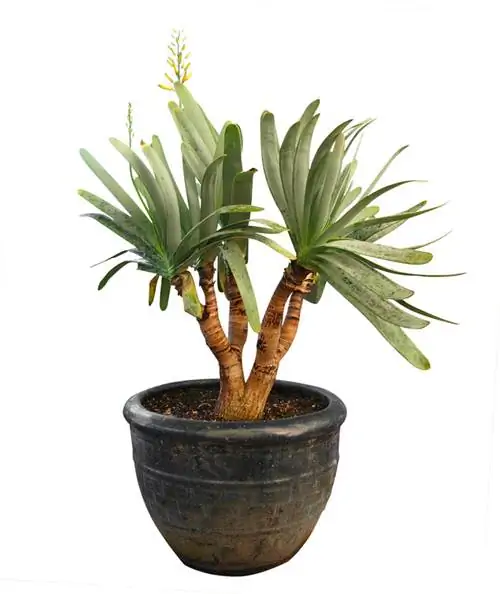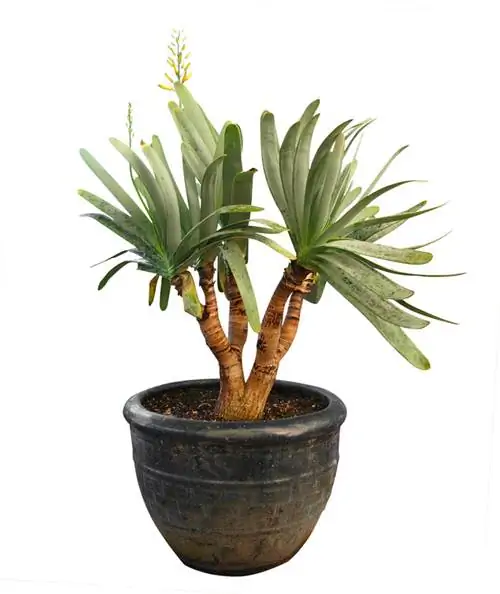- Author admin [email protected].
- Public 2023-12-16 16:46.
- Last modified 2025-01-23 11:20.
Palm lilies are not poisonous to humans. Although they contain saponins (vegetable glycosides), these can hardly be absorbed through the human gastrointestinal tract. In small doses they are not harmful and even have healing effects.

Are palm lilies poisonous to people and pets?
Palm lilies are harmless to humans because the saponins they contain are hardly absorbed in the gastrointestinal tract. However, the palm lily is very poisonous to pets such as cats, dogs, rabbits and guinea pigs and can cause serious symptoms of poisoning.
Saponins are found in many plants and even some vegetables. They have an anti-inflammatory and expectorant effect, but must not enter the bloodstream as they also have a blood-decomposing effect. The real soapwort and the soap nut contain a particularly high amount of saponins and are used for washing.
Pets and the palm lily
The palm lily is very poisonous to pets such as cats, dogs, rabbits and guinea pigs. If your pet nibbles on the yucca, it can cause serious symptoms of poisoning and even death.
Symptoms of poisoning in pets:
- severe mucosal irritations
- increased salivation
- Vomiting
- Diarrhea
- Decomposition of red blood cells
Tips & Tricks
Place your yucca so that it is out of reach of your pets. How to prevent damage to your pet's he alth.






